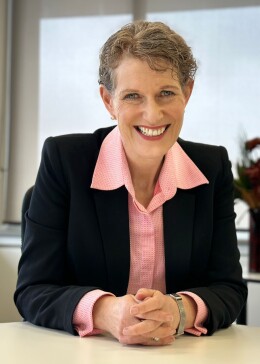No one is coming: Reflections on leadership from Rebecca Kitteridge
 A rocky start
A rocky start
Rebecca’s first step into people leadership was anything but smooth. She was appointed as a “team leader” at the Ministry of Foreign Affairs and Trade (MFAT) in an experimental mid-level recruit programme. The role came with challenges: limited status, no formal training, and resistance from some colleagues.
“One person refused point blank to report to me and some of the managers above me didn’t back me. My first attempt at giving honest feedback ended with someone crying in my office for two hours.”
Despite this, Rebecca persisted. And while that moment was difficult, it didn’t define her time at MFAT.
“I loved my time there. The work was stimulating and of enduring value, and I made friendships that last to this day.”
“I loved the way this learning helped me to make organisations hum and deliver for the good of the public.”
Discovering leadership as a discipline
It wasn’t until later that Rebecca realised leadership was more than instinct, it was a discipline with frameworks, theories and tools. This turning point came through development programmes offered by the Leadership Development Centre.
“It was a revelation. I realised a lot of what I’d been doing instinctively had research behind it, like change management. That was the discovery of my true passion: organisational leadership.”
From that moment, she immersed herself in learning, reading, attending talks, and completing every course she could. The joy came not just from personal growth, but from seeing organisations thrive.
“I loved the way this learning helped me to make organisations hum and deliver for the good of the public.”
Reaping the benefits of development and paying it forward
One of the most pivotal experiences was on LDC’s Leadership in Practice course in 2002. It was a week of deep reflection and tough decisions.
“The phrase ‘no-one is coming’ was confronting. I hadn’t realised how much I’d been assuming someone would sort out my career for me.”
The action learning group formed during that course became a vital support network, helping her build confidence and step into more senior roles. Later, in 2019, she attended the Executive Public Leaders Programme at Oxford’s Blavatnik School of Government, an experience that helped her lead through the aftermath of the Christchurch Mosque attacks.
“It was a brilliant course that helped me find the strength to lead during one of the most difficult times in my career.”
Having benefited so deeply from leadership development programmes, Rebecca was a sponsor of LDC’s inaugural 2025 Executive Leader Development Programme.
“The investment in my leadership made me a better leader who could achieve more for New Zealand. Having experienced that firsthand, I want to help our talented leaders be the best they can be.”
Her new role
Rebecca moves into her new role as Professor of Practice in Public Policy at Oxford’s Blavatnik School of Government in November.
“I’m excited about teaching leadership in government (unlike similar schools that teach leadership to private sector and NGO leaders). It also has a strong focus on integrity. It’s a chance to draw on all my experience.”
She’s also looking forward to the international dimension of the role, continuing her lifelong curiosity about other cultures and contexts.
“And let’s be honest—it’s Oxford. What’s not to love?”
Our Te Putanga | Leadership in Practice programme for experienced mid/senior leaders is currently taking applications for cohort 84 and close 21 November 2025.
Our Executive Leader Development Programme for experienced tier 2-3 leaders is currently taking applications until 14 November 2025.
